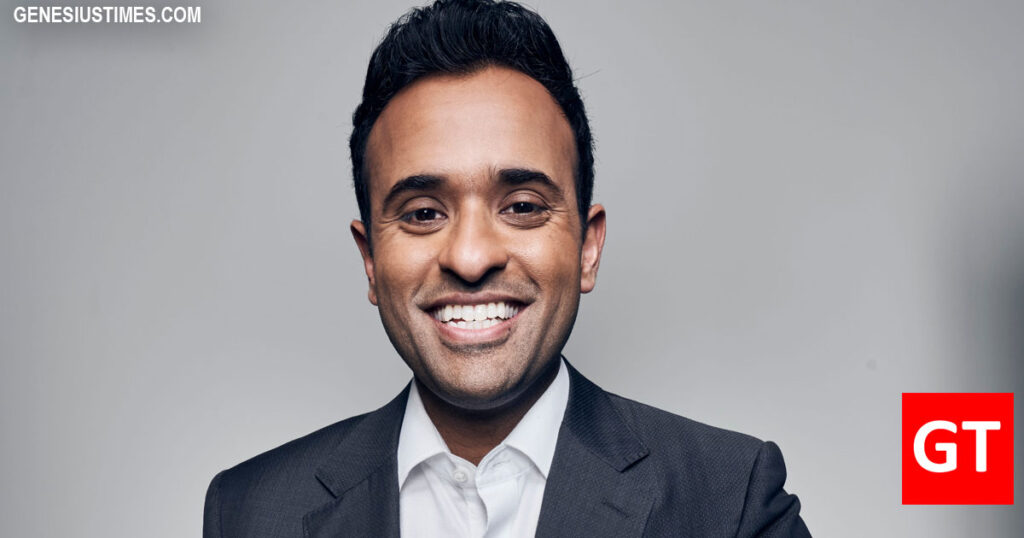Vivek Ramaswamy: ‘I shoulda ran as a black dude’ like Kamala

US—Hindsight being 20/20, a reflective Vivek Ramaswamy looks back at his presidential run with a newfound clarity. “Yeah, looking back, my biggest mistake was not identifying as a black dude,” he admitted in a recent interview, a hint of regret tinging his voice.
“If I had known that using your Indian and Asian heritage to win in California and then switching it up to African for president was the winning strategy, I’d have been all in,” he continued. “I mean, Kamala did it, right?”
Ramaswamy’s comments come on the heels of his less-than-stellar performance in the primaries, where he found himself outshouted by louder voices and outmaneuvered by savvier campaign tactics. But now, with the wisdom of experience, he’s ready to rethink his approach.
“Just imagine,” he mused, “Vivek Ramaswamy, the first Afro-Indian Republican candidate. It’s groundbreaking. It’s diverse. It’s everything the modern voter wants. If you don’t vote for Vivek in 2028, then you ain’t Black!” His campaign slogan, already trending on social media, seems to be catching on like wildfire.
Political analysts are scrambling to make sense of Ramaswamy’s bold new strategy. “It’s a genius move,” said one commentator. “He’s leveraging the cultural zeitgeist and the fluidity of identity politics to his advantage. Plus, who wouldn’t want to see the first president who’s got the best of three continents?”
Expect the unexpected in 2028, as Ramaswamy’s eye-opening campaign strategy is now not only an accepted practice but a potential game-changer. “We’re living in a post-truth world,” Ramaswamy noted. “Why not embrace it? If I can be Indian, Asian, and African all at once, imagine the coalition I can build.”
Supporters are already rallying behind his revamped campaign, with hashtags like #Vivek2028 and #TripleThreatPresident flooding the internet. Merchandise featuring a chameleon donning various cultural garb is flying off the shelves, and Ramaswamy is reveling in his newfound popularity.
But amidst the buzz, some critics remain skeptical. “It’s one thing to rebrand,” said a political science professor, “but it’s another to think that voters will buy into such an obvious ploy. Then again, in today’s political climate, who knows?”
As Ramaswamy gears up for his second shot at the White House, one thing is clear: He’s ready to play the identity politics game to win. And if his newfound slogan is any indication, he’s not afraid to go all in.
“Vivek 2028: If You Don’t Vote For Me, You Ain’t Black!” It’s catchy, it’s controversial, and it might just be crazy enough to work.
![]()





